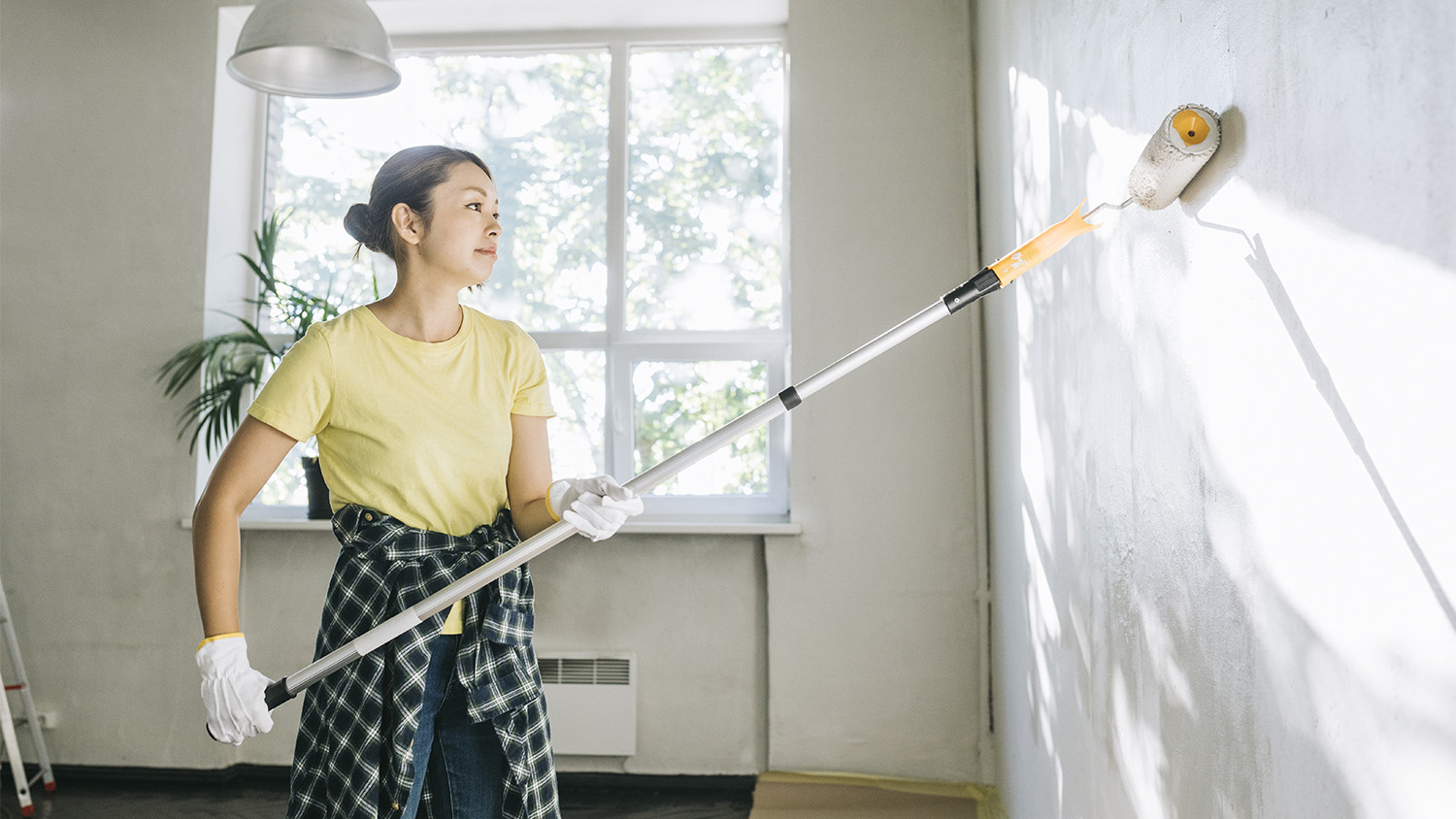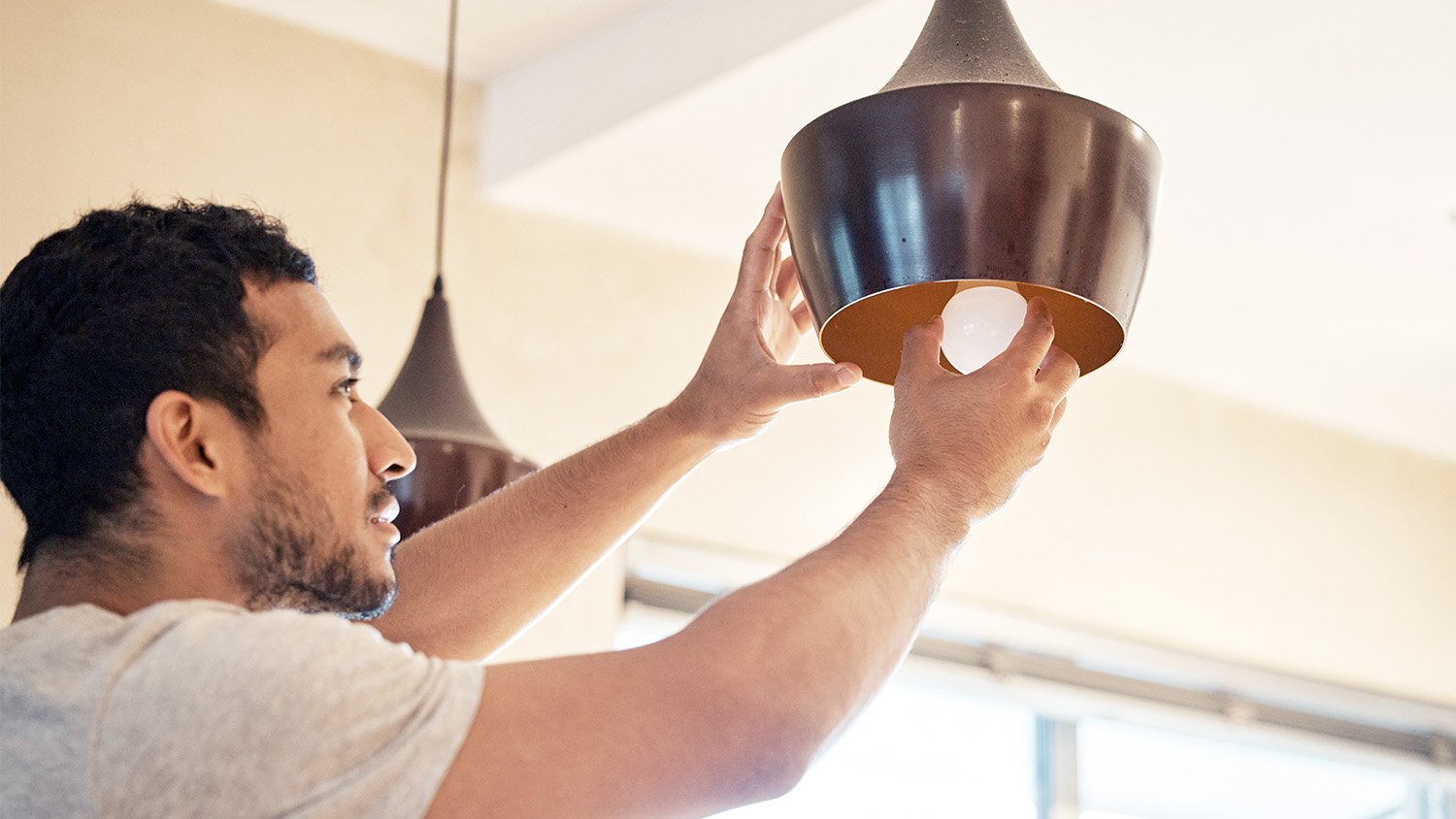Home Projects You Should Take Care of—and Those You Can Skip—Before Selling Your House
Sometimes, a home may need more than a deep clean before it goes on the market


You love your home, but lately, you’ve been thinking about making a change and selling it. However, your home has a few quirks that a new homeowner may not be as fond of as you are (we’re looking at you, squeaky floors), as well as some inevitable wear and tear.
You might think that your to-do list is doomed to be a mile long, but it may not be wise to take everything on before you start selling your house. But what is worth fixing versus selling as is? We’ve rounded up the home improvements you should do and those you should skip before you sell your house.
1. Fix: Repaint the Exterior of Your House
Curb appeal is important, and first impressions matter. So if your home’s exterior hasn’t been painted in years and has sections of flaking paint, this is one of the projects you’ll want to tackle when selling your house. Whether you take on an entire exterior paint job or just fix the most visibly failing spots depends on the severity of the damage. While you’re at it, giving your front door a fresh coat of paint will perk up your home and make it inviting for prospective buyers.
In most cases, you’ll want to consider hiring a local painting contractor to paint your exterior, particularly if you have more than one story and tricky access points.
2. Skip: Replace the Roof
If your roof is more than 15 years old or shingles are starting to flake off, you might feel the urge to replace it before you leave your house. But when it comes down to it, the cost to replace a roof will run around $25,000 on average—meaning it’s probably not a financially wise decision to take this leap on a house you’re about to sell. If your roof is in serious need of repair, you might consider giving the buyer a credit toward a new roof if it comes up in the negotiation process.
3. Fix: Repaint the Interior of Your House

Any realtor is going to tell you to give your interior walls a glow-up before listing, but every homeowner is going to have a different taste. While you may love blue walls, a buyer may want to come in and repaint the whole interior in a completely different color palette.
You’ll want to pick a universal white, gray, or other neutral hues to use across the board. These colors will make the rooms look clean and appear larger and brighter but also offer prospective home buyers a blank canvas to envision what they might be able to do with the space.
If you don’t have time to paint all the rooms yourself, you can bring in a local interior painter to do the job for you.
4. Fix: Plumbing Issues
Buyers are highly alert to problems like leaky pipes, as small issues often signify greater problems lurking below. Before listing your house, address any leaky or burst pipes, clogged drains, or obviously worn-out pipes. If you find evidence of water leaks, it will likely cost you a few hundred dollars to address. Fixing up water damage can be even more costly.
You may not want to take on a plumbing project if you’ll soon be in a new home, but if you don’t fix it, your buyer might request a home repair credit. In most cases, it’s smart to bring in a local plumber on the front end and get it out of the way instead of paying through the nose during closing negotiations.
5. Fix: Eliminate Bad Smells
Whether a smoker lives in your house or you have pets who love to shake themselves dry when walking in from a rainstorm, you’ll want to get rid of bad smells in your house before it goes on the market. A fresh coat of paint goes a long way toward removing the odor of age from your home, as does a fresh, deep scrub by a professional cleaning company.
6. Skip: Cosmetic Upgrades
You don’t need to invest in minor cosmetic changes like replacing toilets, light fixtures, or vanities when you're selling a house. Picking out fixtures is a highly personal choice, and, likely, what you choose may not be what the buyer would want. In most cases, it’s best to save your money and leave those decisions to the new homeowner (and their wallet).
7. Fix: Address Anything Minor That’s Broken

One of the easiest tasks you can do before selling your house is to do routine maintenance and fix anything minor. Do a walkthrough and make notes of small projects, whether that means repairing a rotted window frame, swapping out a damaged tile, or replacing light bulbs.
How your home presents itself to those house-shopping reflects how you’ve cared for it as a homeowner, and you don’t want prospective buyers to mentally reduce their offer with every bit of minor damage they see.
8. Skip: Upgrading the Kitchen or Bathroom
Renovating your kitchen or upgrading a bathroom are two of the most expensive home remodeling projects you can skip when selling. While sure, premium appliances will increase the resale value of your house; you won’t necessarily recoup that investment dollar for dollar. Unless you’re planning to live in the house a few years before selling it, don’t spend the time or money on major room upgrades beyond a coat of fresh paint.
9. Fix: Basic Landscaping

For the same reason you’ll want to paint the outside of your house, you’ll also want to incorporate some basic landscaping into your house-selling checklist. Now is not the time to plant your grandmother’s heirloom roses at the house you’re about to hand over to a stranger, but it is important you maintain your home’s curb appeal during the selling process.
Your top priorities should be keeping up with the lawn mowing while the home is on the market and pruning back shrubs from obvious overgrowth.
If you don’t have time to do this yourself, you’ll want to hire a local lawn care company to handle the weekly maintenance for you.
10. Fix: Foundation Damage
If you notice a foundation issue that a home inspector could bring up, it’s best to fix it now. You’ll be able to hire your own local foundation repair contractor and avoid paying more to fix the issue later. The additional cost of getting the repairs done immediately before closing on a real estate transaction could add an additional 20% to the total job.
11. Skip: Replace the HVAC
An HVAC system has a lifespan of 10 to 20 years. And while you may consider replacing the air conditioning unit if you were going to live in your house a few years longer, doing so before the home gets a new owner is a cost that likely won’t pay off in the final selling price.
If your system is near its expiration date, you could consider offering the buyer a home repair credit if HVAC age comes up when you’re negotiating a final price.
- Which Home Projects To Put On Your To-Do List First After Moving
- How to Build a House: Your Complete Guide to the Home-Building Process
- All the Things to Do Before Selling Your House
- Sell Your House Quickly by Making These 6 Home Improvements and Repairs
- How to Pick Exterior House Paint Colors: 11 Tips for Choosing the Perfect Palette
- 6 Real Estate Green Flags That You Should Buy That House
- 15 Warning Signs That a House Will Collapse
- 15 Surprising Things That Can Actually Devalue Your House
- Home Staging Checklist: 35 Tips to Sell Your Home Quickly
- How to Prioritize Home Improvement Projects















